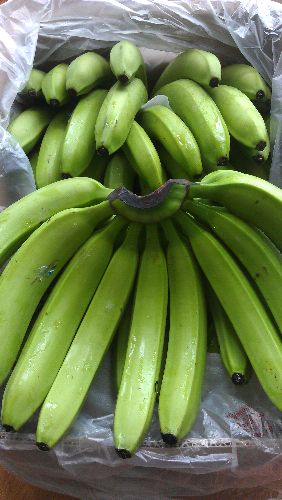
Banana
Time:2019-09-23 00:00:00

Banana
Bananas are widely cultivated and eaten in tropical areas. Bananas are fragrant, nutritious, harvestable throughout the year, and are also valued in temperate regions. The plants are large herbs, derived from rhizomes and formed from the lower part of the leaf sheath ~ pseudo-stems 3~6 metres (10 to 20 feet) high; the leaves are oblong to elliptic, some up to 3~3.5 metres (10 to 11.5 feet) long ,65 cm (26 inches) wide and 10~20 tufted stem tops. Spikes large, drawn from the tip of the false rod, flowers numerous, pale yellow; fruiting order bent down, resulting in 10~20 strings, about 50~150.
Detailed description
Effects of bananas:
Bananas help the brain create a chemical component —— serotonin that stimulates the nervous system, signaling joy, calmness and drowsiness, and even analgesic effects. Therefore, bananas are also called "happy food ". American medical experts have found that eating bananas often prevents high blood pressure, because bananas can provide more potassium ions that lower blood pressure, resist sodium ions boost blood pressure and damage blood vessels. They also believe that people who lack potassium can develop dizziness, general weakness and arrhythmia. Because bananas contain a variety of nutrients, and low sodium content, and do not contain cholesterol, after eating can provide a variety of nutrients, but not make people fat. Therefore, eating bananas often is not only beneficial to the brain, to prevent nerve fatigue, but also to moisten the lungs and relieve cough and prevent constipation.


